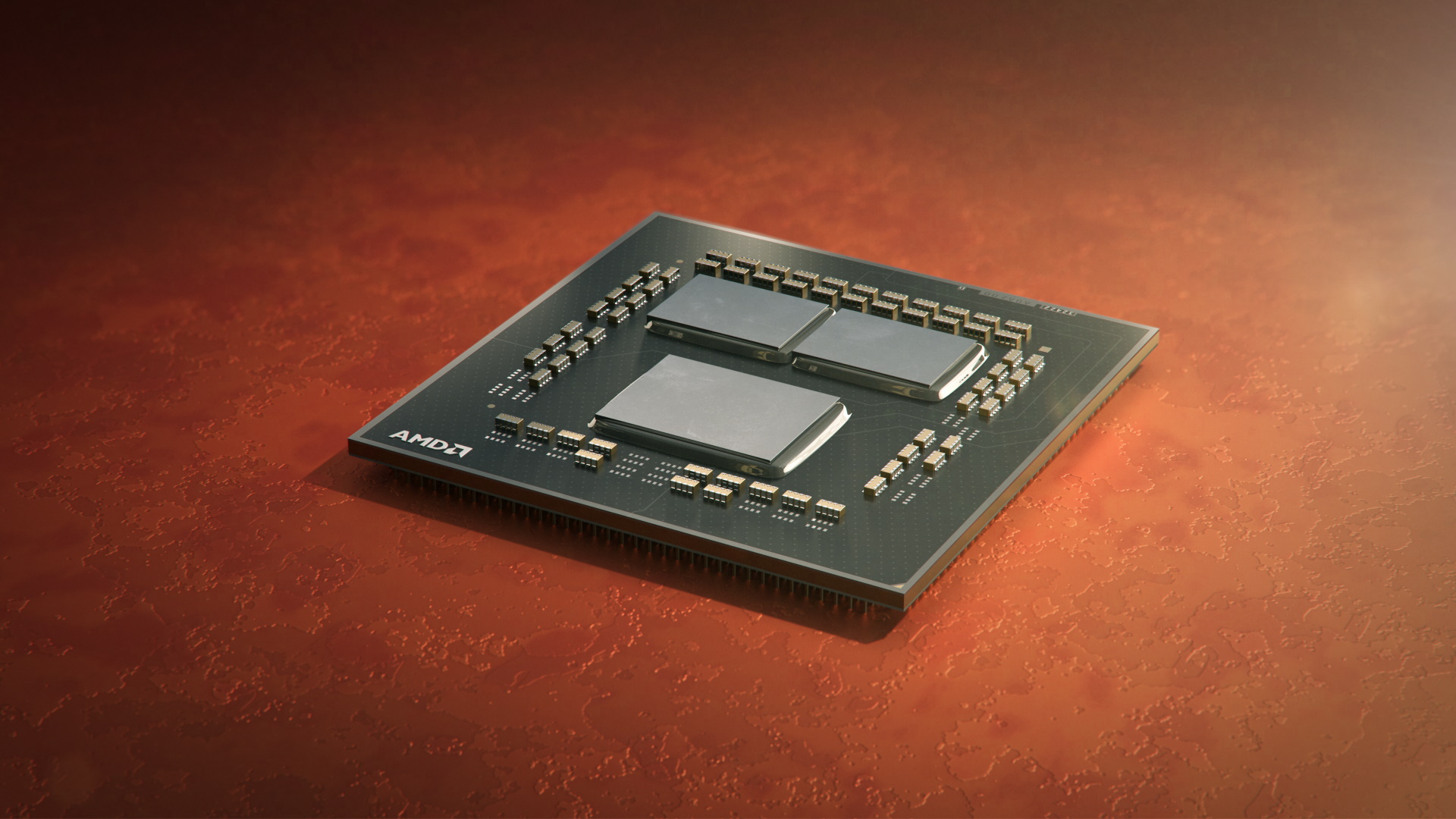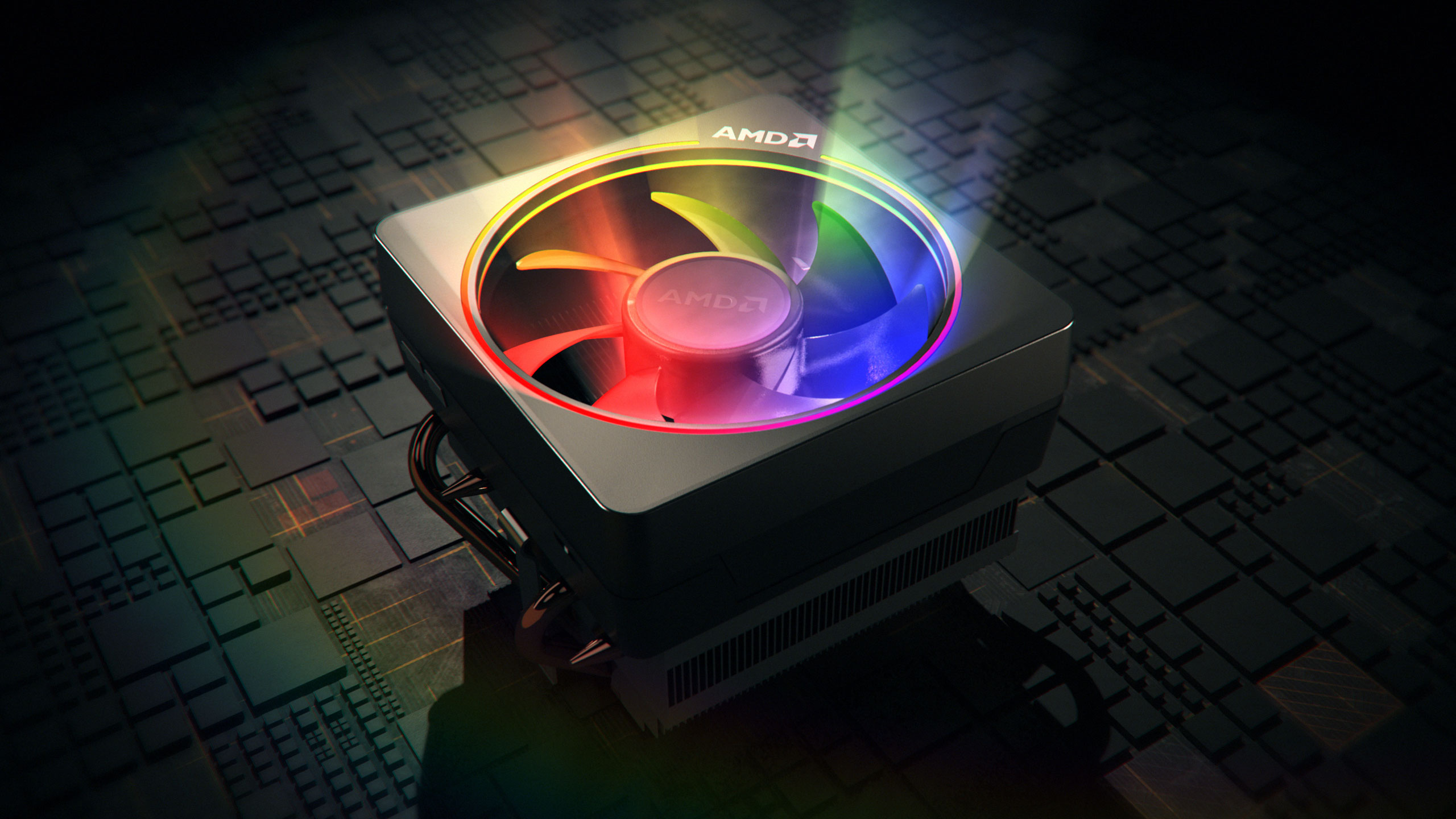AMD's Zen 3 is the gamechanger we've needed for years
It's been an incredible year for PC hardware, but one release stands out above all others.

In a year that has seen more than its fair share of frustrations and change, one release has stood out for me more than any other: I'm talking about the AMD Ryzen 5000 series. Processors get better and better with each release, that's a given, but the third full iteration of the Zen architecture was a major reworking that saw AMD match the gaming performance of Intel for the first time in a long, long time.

Best CPU for gaming: the top chips from Intel and AMD
Best graphics card: your perfect pixel-pusher awaits
Best SSD for gaming: get into the game ahead of the rest
Core to AMD making such a leap forward is the fact that Zen 3 isn't just an evolution of Zen 2 with a few nips and tucks, but a fundamental reworking of how the chip is configured and how the chiplets are laid out. This is the reason AMD has been able to boast a 19 percent IPC improvement over Zen 2. IPC, or instructions per clock to expand the initialisation, is a measure of how many operations a processor can perform at a given clock speed.
And 19 percent is a big improvement in modern CPU terms, especially given that Zen 2 was in a fairly healthy place to start with.
It's this IPC improvement that translates to better gaming performance overall. Something that's even more impressive when you consider Intel's chips tend to have much faster clock speeds in the first place—the top of the 10th Gen stack, the Intel Core i9 10900K can hit 5.3GHz, while the AMD Ryzen 9 5950X officially tops out at 4.9GHz (although in practice can hit 5GHz). Put another way, AMD is crushing Intel in IPC terms right now, and while that's been true for a while, the fact it now includes gaming is awesome.
This kind of gaming parity would have been fanciful just a few short years ago, and yet here we are wondering how Intel bounces back from this? And I'm sure it will, this is Intel after all. A company that prides itself on its technical prowess cannot be so easily dispatched. It may take a generation or two to get there, but it has the kind of deep pockets that can keep it in the game in the meantime—we've already seen some impressive price drops to keep the likes of the Core i7 10700K competitive.
And to be fair to Intel a second, it's not like AMD has surpassed it in gaming terms, they're just within a few frames per second of each other—you really can't call it one way or the other. Indeed, one counter-argument is that AMD has only just caught up with Intel's ageing technology on an outdated production process. And that would be a reasonable point if it weren't for the fact that it's AMD that is smashing it elsewhere: If you want to get the most from a PCIe 4.0 NVMe SSD like the Samsung 980 Pro, then Intel isn't even an option, and anyone after serious core counts for serious work will probably look at Intel's portfolio with an upturned nose.
If you are a content creator that also like play games from time to time, there's nothing really comparable to the Ryzen 9 5950X. Its 16 cores and 32 threads give you plenty of raw power where you need it most, and the fact that it also tops the performance charts for gaming means that if you haven't already bought one, then you're probably just trying to justify its $750 price tag to yourself. Alternatively, the 12-core, 24-thread Ryzen 5 5900X is $250 cheaper and still packs an impressive punch where it counts, including in gaming terms.
Keep up to date with the most important stories and the best deals, as picked by the PC Gamer team.
At the other end of the spectrum, the $300 AMD Ryzen 5 5600X is a great gaming option, that even comes with a cooler. And sure, you'll get better performance if you clamp an AIO cooler on it, but it won't make much difference in games, so why bother? If you're looking to build a reasonably priced gaming machine that will last you for years, I'd be hard pushed to think of a better chip to build around right now.

The fact that AMD is the definitive option in two very different systems right now says so much about Zen 3 and AMD in general. Even so, I wish there was something in between the awesome Ryzen 9 5900X and the equally impressive Ryzen 5 5600X that just made a bit more sense financially than the Ryzen 7 5800X. It's still a great chip, just a tad too expensive.
I dunno, something like a Ryzen 7 5700X maybe? With slightly lower clocks and a much lower price point. I'm thinking $350 for the lot. If we could throw in a Wraith Prism while I'm dreaming about it, that'd be awesome.
Hopes aside, though, AMD has produced an incredible new architecture this year, and it should be applauded for it. Yeah, you can get excited about the RTX 30-series, and the continued improvements elsewhere in the PC gaming space, but AMD finally wrestling the gaming crown off Intel? That's the standout event of the year for me.
Alan has been writing about PC tech since before 3D graphics cards existed, and still vividly recalls having to fight with MS-DOS just to get games to load. He fondly remembers the killer combo of a Matrox Millenium and 3dfx Voodoo, and seeing Lara Croft in 3D for the first time. He's very glad hardware has advanced as much as it has though, and is particularly happy when putting the latest M.2 NVMe SSDs, AMD processors, and laptops through their paces. He has a long-lasting Magic: The Gathering obsession but limits this to MTG Arena these days.


